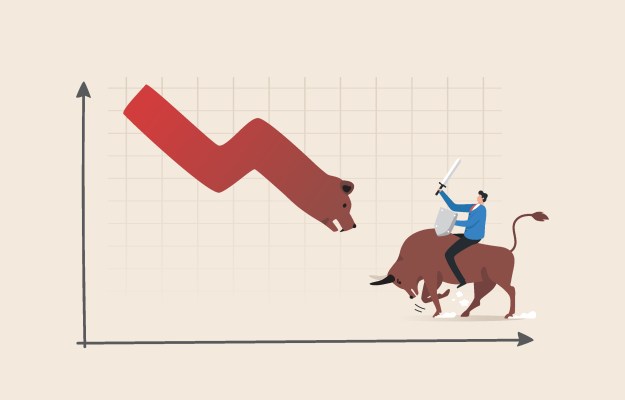Venture funding has been declining since the first quarter of 2022. But that trend has largely spared the seed stage until now. Or has it?
Apparently, Q2 was quite rough for seed deals, according to new data from PitchBook. Startups in the U.S. closed 766 seed deals in Q2, which was 26% less than the 1,044 deals they had in Q1.
And that dip means the second quarter had the lowest number of seed deals we’ve seen since Q3 2016. If things don’t change, 2023 could be the slowest year for seed activity since 2017.
But despite these numbers, many seed managers told TechCrunch+ that they are still seeing strong deal flow. They also have a few ideas of why this metric is declining.
One factor is the pace of deals. Leslie Feinzaig, the founder and CEO at pre-seed and seed-focused venture firm Graham & Walker, said the current timeline to close a seed deal is the longest she’s ever seen it — not just a retreat to pre-2021 craziness, but in her career. This means that even though deals are getting done, they’re happening at a cadence that still slows the entire stage down.
“In 2022, it still felt like folks could get some level of traction with a round, run a process and get a close. Now I’m seeing entrepreneurs that I never thought in a million years would struggle, struggling to fundraise,” Feinzaig told TechCrunch+.
No one to lead, no one to follow
Another hurdle for seed deals appears to be finding folks to invest. While seed firms have remained active, funds with broader foci have started to retreat. Richard Kerby, a partner at seed-focused Equal Ventures, said he’s seen some movement on who wants to back seed-stage startups who aren’t fully focused on seed investing. While he’s heard some multistage investors double down on the category — some had dedicated seed funds to deploy — others are definitely pulling back.
“When talking to some firms in that multistage bucket, I’ve heard them wanting to do fewer seed and more Series A, but I’ve also heard the opposite,” Kerby said. “Some are saying we’ve still seen great value in seed.”
Feinzaig added that she has noticed less interest from angel investors, too. There are definitely safer places for them to be putting their money right now, she noted. But the real reason she thinks there aren’t as many angels is that they like to come into larger seed rounds with a strong lead investor, which doesn’t happen as often as it used to now that tourist VCs have pulled back.
“With fewer VCs leading, fewer angels will want to follow,” Feinzaig said. “There is a big chunk of the angel world that wants to be a part of a round only if there are VCs in it. If fewer VCs are playing, there are fewer people to lead and fewer to follow.”
Plus, she added that some investors who only invest strategically in seed are holding out for the flashy, competitive deals, and there aren’t as many of those in this market.
Uncertainties galore
Valuations could also be a factor. While both Kerby and Feinzaig said that valuations have started to come back down to earth, many founders are still looking for inflated pricing.
According to PitchBook, while the average pre-money valuation for seed-stage startups so far in 2023 has come down, the median pre-money valuation at this stage is the highest it’s ever been at $10.9 million.
It’s also likely some investors are less tempted to back certain companies due to the later-stage funding bottlenecks that have now rippled all the way down the capital stack to the Series A.
Last month, Loren Straub, a general partner at Bowery Capital, told TechCrunch+ that she had passed on a deal that had a great product, a solid founder and a reasonable valuation because of the uncertainty at the Series A level. Her firm just wasn’t sure the company was raising enough money to hit the milestones needed to raise further funding.
Kerby said that while such considerations aren’t a top concern for his firm, he has heard similar concerns from other investors.
“There are definitely firms and investors who think, ‘Is this a category of company that will be attractive to Series A investors or not? And, two, ‘What are the milestones that the company needs to hit?’”
Feinzaig agreed: “Generally when I look at companies, I value at execution risk, market risk and funding risk, and right now across the board, the highest risk is funding risk,” she said. “You just don’t know where that next round is going to come from.”
The sector also plays a large role here. If the data is broken down by sector, AI seed deals likely wouldn’t be seeing much of a dip at all, but some categories are struggling more than others. An investor told me that she’s seen strong deal flow in the categories she backs, but areas like web3 and consumer have been crickets.
This dynamic may not be great for founders, but it is still quite positive for seed-focused investors. Kerby, Feinzaig and other seed investors TechCrunch+ spoke to said that this is a great time to be investing in this section of the venture market. Deals are less competitive, there isn’t a rush, and investors feel like they are backing companies that will be more resilient and cash-efficient in the long run.
“I’m recognizing how much harder it is for an entrepreneur to get stuff off the ground, but that means there is a higher bar for what gets off the ground,” Feinzaig said. “You kind of have to remember: If you were getting into this world of launching startups, raising capital and impacting millions of people with technology, you shouldn’t get into it thinking it will be easy, because it is not.
“If it felt easy before, that was not a healthy market.”
